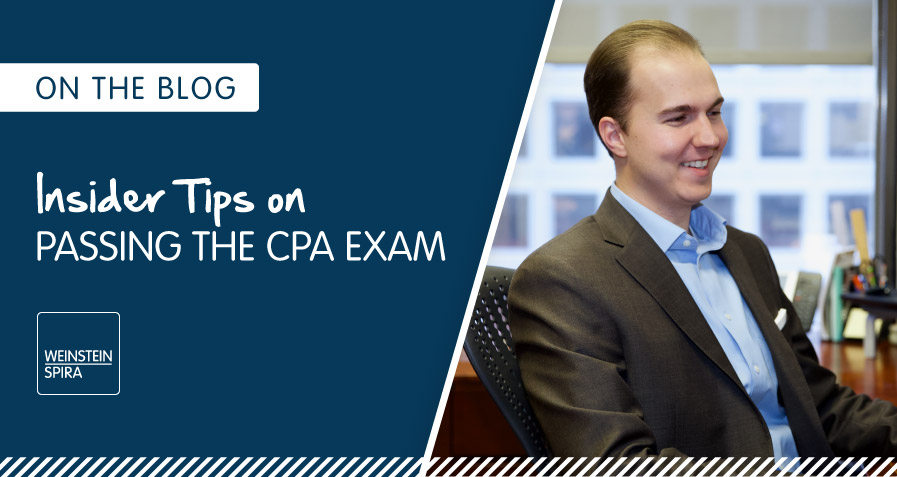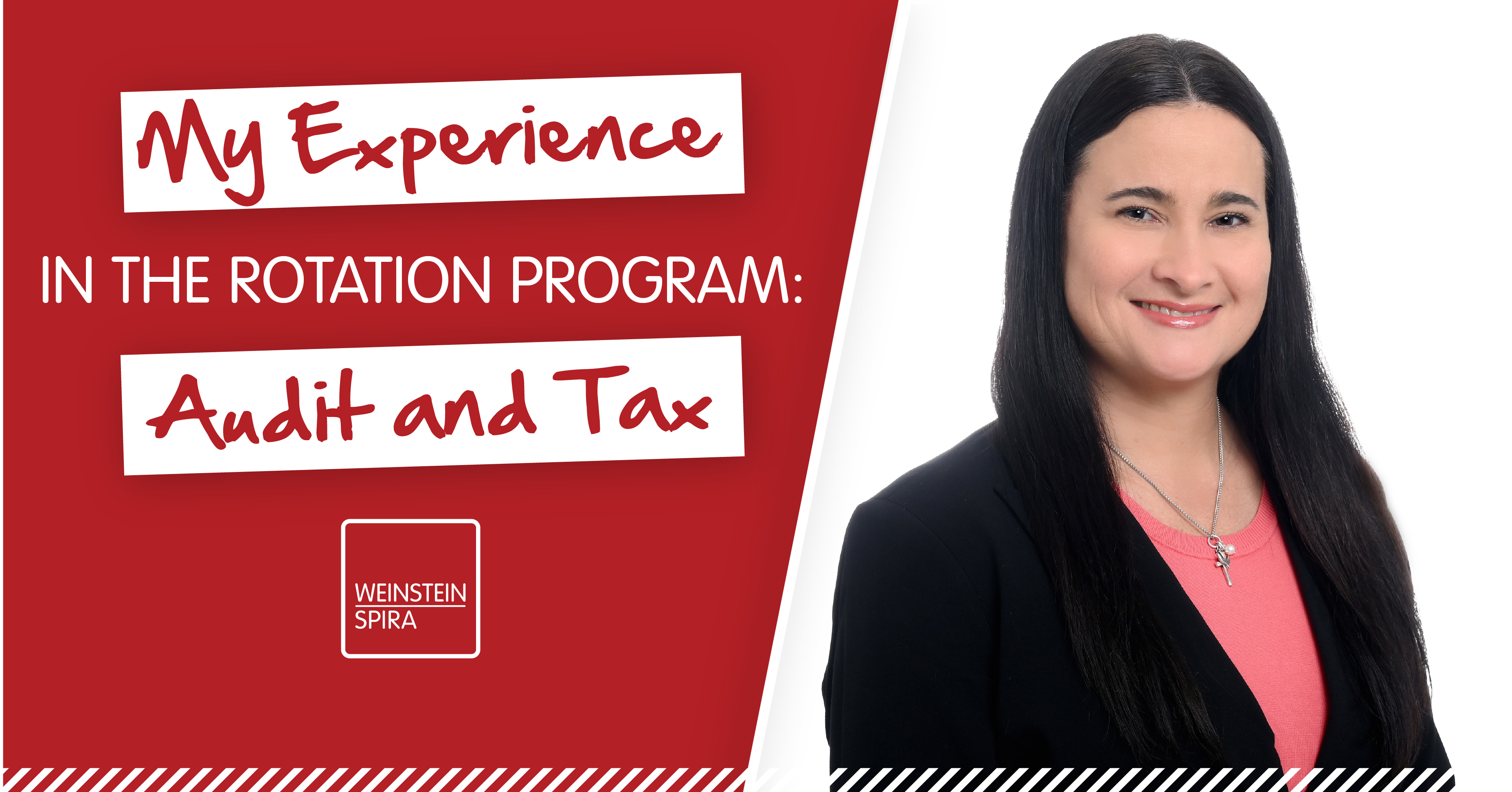Taking the CPA exam at any time is a huge challenge, as those who have been through the process will attest. It can be a challenge trying to work full-time while studying, so most people want to take the exams as quickly as possible upon graduation. In light of the COVID-19 restrictions, however, there is the additional concern of scheduling the actual test due to several testing centers having limited occupancy. So, more than ever, it is critical to be organized and plan ahead!
In this blog post, I will share some tips that I learned by doing, or not doing, certain things to ensure proper preparation and ultimately pass the exam. These tips apply regardless of when you take the exam (first time, second try, during COVID or during “normal” times).
Believe in yourself
This is half the battle! In my mind, it is the most important aspect, as it is easy to be intimidated by an exam that generally has a pass rate between 45% and 50% (per statistics over the last 14 years). Despite there being a good chance you will have to repeat at least one of the four parts, or even take a section several times before passing, don’t get discouraged. Remain positive and optimistic; having a healthy mindset will guard against devastation and help you keep going to meet your CPA goal. It has been shown that we tend to remember more when we are at peace with ourselves. To the point of discouragement, I went so far as to consider changing careers when things got tough. My advice is to be true to yourself, and do not let other people or statistics get in your way. Passing the exam will be well worth it as you climb the corporate ladder to a future management position or start own accounting practice.
Develop a realistic study plan
The key word here is “realistic”! Such a plan balances the hours dedicated to studying with the time needed for work, home and other responsibilities. Be aware that you cannot breeze through prepping for this exam or cram at the last minute, like you may have done in college. With the physical and emotional stress required to sustain a diligent, steady study plan over several months, it is all too easy to break down (and in some cases, give up). You can avoid pitfalls by purchasing a CPA exam study program that includes a study schedule planning tool. Planners help take the guess work out of calculating how many weeks you will need to allot adequate time to each section. Then, commit to staying on track. If you plan to study six hours per day, do not short-change yourself with only four hours. That being said, try to allow time to relax, decompress and unwind with family, friends or hobbies. Setting unrealistic daily study goals ended up hurting me, because the responsibilities of life got in my way. You never know when something unexpected is going to come up!
Pick the right CPA study program for you
There are a lot of programs available with different variables, including price. Base your decision on the way you learn best. Do you like to read traditional textbooks, or watch a live lecturer? Do you prefer listening to podcasts in your car? Or perhaps you prefer a combination? Some programs these days even have apps with games to interact with, while reinforcing concepts. Set your budget and take your time to research the programs you can afford. It’s an investment, so don’t jump into the first, or most expensive, one. Some offer a two to three week trial that can help avoid a costly mistake. I took advantage of a trial program and was glad that I did, as I ended up with a program I was not originally aware of but was appropriate for my learning style.
Identify a testing center, date, and time ASAP
This involves picking a date and time, as well as the location for taking the exam. It is important to do so as soon as possible. Pre-COVID, seats filled up very fast, and now there might be fewer options in your local area due to social distancing and some testing centers implementing limited occupancy. Since there are only a few testing centers in each area, you could run the risk of having to go to another city or state. This adds to the stress with having to secure a hotel room or drive a long distance early in the morning, throwing off your mood and ability to perform on game day. If possible, try to get a date at the end of your scheduling window to have more time to practice and prepare. Ideally, if you finish early, you will have a day or two to take it easy and rest up. I found it always made a big difference to get a great night’s sleep to feel refreshed and knock it out of the park. I highly recommend not cramming the night before!
Taking the most difficult exam section first
With four sections total—Business Environment and Concepts (BEC), Auditing and Attestation (AUD), Regulation (REG), Financial Accounting and Reporting (FAR)— it is a good strategy for most people to get the hardest section out of the way first. Assess which one is most difficult for you! This will vary based on your background and experience. Remember, once you pass the first exam, the clock starts ticking, with a specific timeframe to successfully pass the other sections, or you will lose credit. I made the mistake of taking the easiest one (for me) first and had to re-take it. I went on to pass the fourth section the very day another one of my score credits was set to expire. This caused a lot of undue pressure! In hindsight, it would have been a more pleasant experience and given me more time with family and friends had I chosen the hardest-first route.
Hopefully, these tips will arm you with some strategies and tactics to apply to your unique situation, and to sidestep common mistakes. It is always best to plan, prepare and stay on course to pass the CPA exam while you have the momentum. We all know it can be harder to get back in study mode after too much time elapses, and life events tend to get in the way.
Good luck to anyone who has an exam coming up soon!



